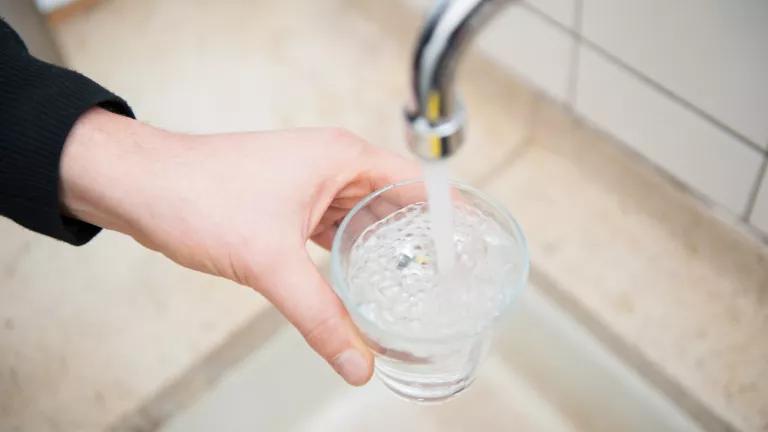Like many Americans, I get alarmed every time I hear about a batch of contaminated chicken or spinach making thousands of people sick. I am not a chemist, and I don’t know how to test for dangerous bacteria in my kitchen. I rely on government officials to do the job. But that job just got a lot harder. Now that automatic budget cuts are going into effect today, government agencies will have less funding to inspect our food and ensure it is safe.
Agencies will also have a difficult time keeping national parks open, delivering meals to senior citizens, and providing countless other services Americans depend upon. This is not political theater—the budget cuts are real and they are going to hit home.
They strike at the core of essential health and environmental programs that many Americans depend upon. Take the air we breathe, for instance. The Environmental Protection Agency has said it will have to cut back on air pollution monitoring. As a result, local officials will have a harder time warning senior citizens and asthma sufferers about bad air quality days, and parents and coaches will have a tougher time knowing if it is safe for children to play outside.

It doesn’t have to be this way. These automatic, across-the-board spending cuts, known in Washington as “the sequester,” are occurring because Republicans in Congress have decided they’d rather reduce basic programs than negotiate with President Obama. The President has outlined a balanced approach to the budget that includes targeted spending cuts and new revenue. Republican leaders in Congress, however, are blocking this plan. They have welcomed cutbacks in programs the public depends on while continuing to oppose getting rid of loopholes for millionaires and subsidies for oil companies. Those subsidies cost money that could go to pay for needed programs.
These giant corporations don’t need government assistance. The top five companies—BP, Chevron, ConocoPhillips, ExxonMobil, and Shell—brought in $118 billion in profits last year. They earned $375 million per day in 2011. But the oil industry still gets $8 billion in subsidies from American taxpayers every year.
Why are we subsidizing a wealthy industry that burdens us with $50 billion in health care costs associated with pollution, $515 million in annual property damage caused by oil spills, and 11,000 lost jobs from the top five oil companies between 2005 and 2010?
It’s time to end subsidies and close loopholes for polluting industries like oil. NRDC and other groups have launched an online campaign, “Which Would You Cut,” contrasting the sequester cuts affecting education, food safety, national parks and more, versus the oil subsidies.
We can reduce the deficit without sacrificing our health and natural heritage. Congress must move immediately to end the "sequester" for the sake of our economy and our communities. With a balanced approach of targeted spending cuts and increased revenues, Congress could steer us out of this mess and start investing in the long-term health and vitality of our nation.



